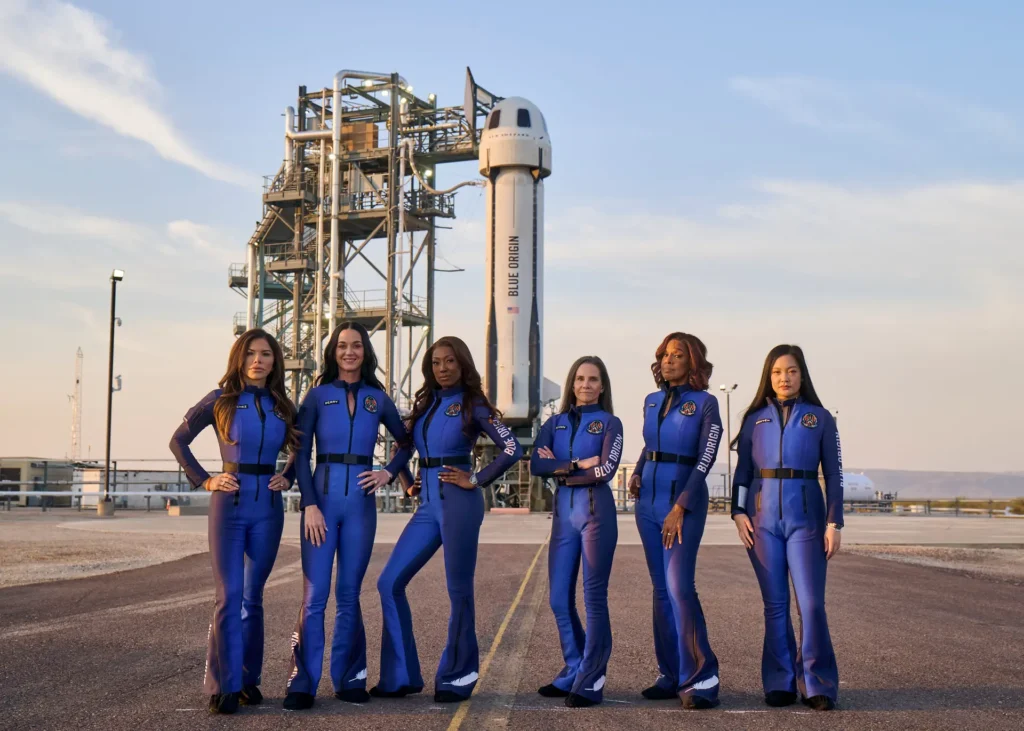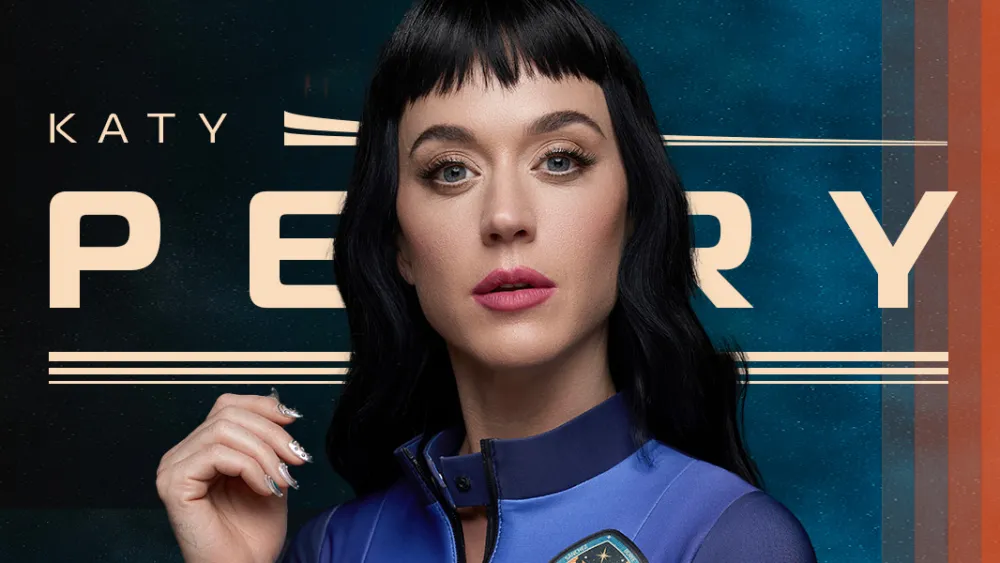Taking to the Sky and Forgetting the Earth: Katy Perry’s Space Odyssey in the Shadow of Criticism
Is going into space while global problems persist on Earth really progress, or is it just an expensive spectacle?
On 14 April 2025, Katy Perry became the first pop star to go into space aboard Jeff Bezos’ space company Blue Origin’s New Shepard rocket. In addition to Perry, the six-member crew, consisting of Lauren Sánchez, Gayle King, Amanda Nguyen, Aisha Bowe and Kerianne Flynn, was made up exclusively of women. This 11-minute suborbital flight made history as the first all-female spaceflight since Valentina Tereshkova in 1963 (Blue Origin NS-31, 2025).

However, contrary to expectations, this historic moment was met with more criticism than praise.
The voyage was presented as a symbolic moment celebrating the representation of women in space. However, many felt that this emphasis on ‘female empowerment’ was actually part of a commercial marketing strategy. Celebrity model Emily Ratajkowski directly described the voyage as a ‘waste’ and argued that these resources should be directed to more pressing problems around the world (People, 2025).
Criticism was not limited to him. The Brookings Institution emphasised that billions of dollars spent on space tourism could be used for more urgent and concrete goals, such as fighting global poverty or preventing the climate crisis (Brookings Institution, 2021).
In addition, the fact that these trips were organised with the emphasis on ‘women’s solidarity’ was also met with reaction from some feminist circles. The Guardian writer Moira Donegan stated that this flight overshadowed the real achievements of women in science and technology and served to commercialise feminism (The Guardian, 2025).
Marketing Rockets: Bezos – Musk – Branson Rivalry
This journey was also part of a remarkable competition between space billionaires that has been going on for years. Thanks to giant social media platforms such as X (formerly Twitter), Elon Musk can easily make his voice heard by the masses. Musk’s visual narrative with SpaceX makes almost every launch go viral. Sir Richard Branson, on the other hand, is one of the early entrants in this race with Virgin Galactic, aiming to present space tourism with a more democratic and experience-oriented vision. Jeff Bezos, on the other hand, manages to attract attention in this competition in a different way and carries out his marketing strategy through famous names.

On the other hand, Jeff Bezos builds his marketing strategy on a different axis and includes famous personalities in this strategy. The selection of Katy Perry, one of the global symbols of pop culture, for this Blue Origin flight is also a part of this approach. Perry, who has 204 million followers on Instagram, was positioned not only as a passenger but also as a carefully selected advertising face.

Space tourism is still a distant dream for most people, full of unknowns and a desire to explore (Sesliokuyucu et al., 2023), and companies prefer to use popular figures embraced by society to make this dream more ‘familiar’. In this way, a complex and scientific field is transformed into a more accessible and attractive marketing narrative.
A Luxury or an Investment for Humanity?
Nevertheless, there are those who argue that such initiatives are not just for advertising or entertainment purposes. Space tourism provides an important infrastructure for future space travel and potential colonisation. New technologies are being tested, systems are being developed, and in a sense, these journeys feed humanity’s universal sense of wonder. However, these projects, by their very nature, require huge budgets. This forces companies to carry out extensive advertising campaigns in order to gain more investment and public support. This is why space tourism is still seen in some circles as a ‘hedonic joke against the reality of life’.
Today, many leisure tourism companies around the world are pursuing similar promotional strategies with big budget advertising campaigns and media investments. However, even the public opinion, which is familiar with such marketing methods, is more critical when it comes to space. This is because space tourism is a form of tourism that is based on the desire to explore the unknown and that involves differences in terms of personal curiosity and satisfaction. This difference makes it misunderstandable and open to criticism from time to time.
Katy Perry’s space journey was not only evaluated as a scientific experience, but also as a marketing move, a social message and a media spectacle. In many respects, the criticism was justified because the trip raised many important debates, from the use of resources to the superficial presentation of representation and the commercialisation of feminism.
However, this journey is also a harbinger of rapidly advancing technological developments and a growing space tourism industry. As more and more private companies invest in space travel, competition is naturally heating up. This competitive environment will manifest itself not only in rocket technologies but also in marketing strategies. In the future, it is inevitable that we will encounter different forms of advertising, more striking faces and more assertive symbols. In the midst of all these developments, today’s criticisms will not only set the agenda, but will also become a factor shaping how companies communicate with the public, what they represent and what they overshadow.
References
Blue Origin NS-31. (2025). Wikipedia. Retrieved April 18, 2025, from https://en.wikipedia.org/wiki/Blue_Origin_NS-31
Brookings Institution. (2021). On space barons and global poverty. Retrieved April 18, 2025, from https://www.brookings.edu/articles/on-space-barons-and-global-poverty/
People. (2025, April 17). Why Is Blue Origin Facing Backlash? Inside the All-Female Space Trip’s Controversy — and How Its Crew Is Responding. Retrieved April 18, 2025, from https://people.com/blue-origin-flight-controversy-explained-11717118
Sesliokuyucu, O. S., Koc, R., & Ozturk, A. (2023). Space tourism as a new experience: A research on Gen-Z. Journal of Mediterranean Tourism Research, 2(2), 102-117.
The Guardian. (2025, April 15). The Blue Origin flight showcased the utter defeat of American feminism. Retrieved April 18, 2025, from https://www.theguardian.com/commentisfree/2025/apr/15/blue-origin-flight-american-feminism
Pictures: Arstechnica, Blue Origin, Tiktok, The Standard, WWD


